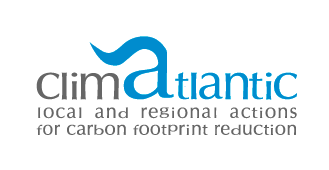NEWS & EVENTS : GENERAL INFORMATION

The path to resource-efficient growth
10.02.2011
The European Commission set out a 'roadmap' aimed at transforming Europe's economy into a sustainable one by 2050. The Roadmap to a resource-efficient Europe outlines how we can achieve the resource efficient growth which is essential for our future wellbeing and prosperity.
climatlantic //
The roadmap identifies the economic sectors that consume the most resources, and suggests tools and indicators to help guide action in Europe and internationally. It is an agenda for competitiveness and growth based on using fewer resources when we produce and consume goods and creating business and job opportunities from activities such as recycling, better product design, materials substitution and eco-engineering.
Rising demand around the globe is increasing pressure on the environment, and creating greater competition for resources. Key natural resources such as raw materials, metals, energy, biodiversity and water have been used to fuel economic growth as though supplies were inexhaustible. This is not sustainable in the long term. Today's roadmap puts forward the means by which we can continue to achieve growth in a sustainable way.
Measures are set out aimed at transforming production and consumption, with incentives for investors to promote green innovation, and a greater role for eco-design, eco-labelling, and greener spending by public bodies. Governments are invited to shift taxation away from labour towards pollution and resources, and to provide fresh incentives to push consumers towards resource-efficient products. The roadmap also recommends adapting prices to reflect the real costs of resource use, especially on environment and health.
The roadmap aims to address resource inefficiency in the sectors that are responsible for the greatest share of environmental impacts – namely food, buildings and mobility, whose combined effects account for 70-80 % of all environmental impacts.
The importance of managing the natural resources that underpin our economy more efficiently is also stressed. Pressures on resources like biodiversity, soil and climate are constantly increasing, and a failure to meet the existing goals could spell disaster in the longer term.
The roadmap recommends an integrated approach across many policy areas at European and Member States levels and focusing on the resources under most pressure The instruments employed will include legislation, market-based instruments, refocusing of funding instruments and promotion of sustainable production and consumption. Clear targets and indicators providing predictability and transparency for all will be developed by 2013, through a participative process involving policy makers, experts, NGOs, business and consumers.
To achieve actions and measures indicated in the roadmap, the Commission will prepare appropriate policy and legislative proposals to implement it. Member States will also need to act at their level, bringing new efficiency measures to business and consumers.
For more information:
http://ec.europa.eu/environment/resource_efficiency/index_en.htm
European Commission Communication COM (2011) 571 final “Roadmap to a Resource Efficient Europe” at the documentation section of this website:








